Ditapis dengan
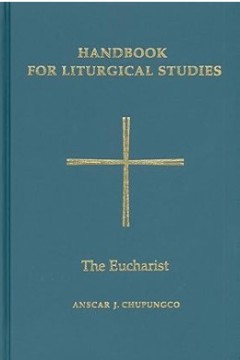
Handbook for Liturgical Studies Volume 3 : The Eucharist
Volume III: The Eucharist contributes to the reflection on the meaning and purpose of the eucharistic celebration. It also offers to teachers and students of liturgy a handbook for studying this subject according to a system based on historical development, theology and doctrine, liturgical texts and traditions in both East and West, and pastoral considerations. Articles and their contributo…
- Edisi
- First Published
- ISBN/ISSN
- 0-8146-6463-7
- Deskripsi Fisik
- xvi + 371 pgs.; 24 cm.
- Judul Seri
- -
- No. Panggil
- 264 CHU h3
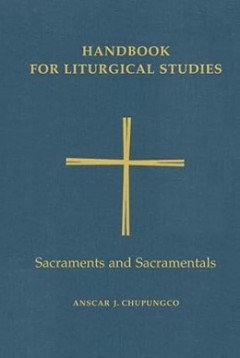
Handbook for Liturgical Studies Volume 4 : Sacraments and Sacraments
Volume IV: Sacraments and Sacramentals contributes to a deeper understanding of the nature and purpose of sacraments and sacramentals and leads the reader to a more critical appreciation of Vatican II decrees and what the postconciliar reform has implemented. This fourth volume opens with a review of the basic liturgical notion of sacraments and sacramentals and then examines them according to …
- Edisi
- First Published
- ISBN/ISSN
- 0-8146-6164-5
- Deskripsi Fisik
- xxvii + 416 pgs.; 24 cm.
- Judul Seri
- -
- No. Panggil
- 264 CHU h4
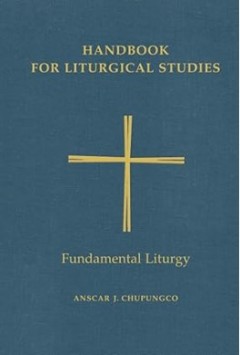
Handbook for Liturgical Studies Volume 2 : Fundamental Liturgy
What concepts must one have in order to understand and explain the nature and purpose, the plan and actualization, and the relational character of the liturgy? Volume 2: Fundamental Liturgy addresses this question in three parts—epistemology, celebration, and human sciences—which develop the foundational concepts of the liturgy. It leads the reader to a deeper understanding of the liturgy b…
- Edisi
- First Published
- ISBN/ISSN
- 0-8146-6162-9
- Deskripsi Fisik
- xv + 381 pgs.; 24 cm.
- Judul Seri
- -
- No. Panggil
- 264 CHU h2
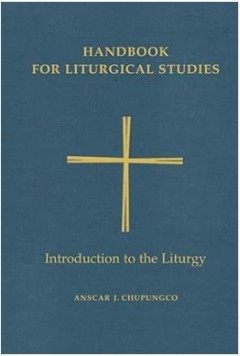
Handbook for Liturgical Studies Volume 1 : Introduction to the Liturgy
More than forty authors from Asia, Africa, Latin America, North America, and Eastern and Western Europe have contributed to the Handbook. Many are professors and graduates of the Pontifical Liturgical Institute in Rome. Each author, while drawing material from liturgical tradition and from ancient, medieval, and modern sources, writes also from a particular research and personal interest in a s…
- Edisi
- First Published
- ISBN/ISSN
- 0-8146-6161-0
- Deskripsi Fisik
- xiv + 425 pgs.; 24 cm.
- Judul Seri
- -
- No. Panggil
- 264 CHU h1
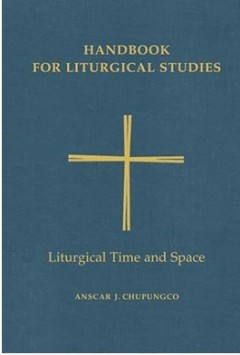
Handbook for Liturgical Studies Volume 5 : Liturgical Time and Space
The final volume in the Handbook for Liturgical Studies series, Volume V: Liturgical Time and Space contains the concluding material for an integral study of the liturgy. It opens with a preliminary notion of time and space, before discussing in detail three types of liturgical celebrations on which time and space have a direct and particular bearing. The first of these is the Liturgy of the Ho…
- Edisi
- First Published
- ISBN/ISSN
- 0-8146-+165-3
- Deskripsi Fisik
- xxvi + 420 pgs.; 24 cm.
- Judul Seri
- -
- No. Panggil
- 264 CHU h5
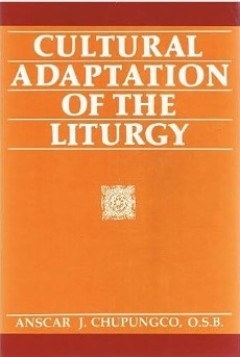
Cultural Adaptation of The Liturgy
- Edisi
- First Published
- ISBN/ISSN
- 0-8091-2452-1
- Deskripsi Fisik
- 119 pgs.; 20 cm.
- Judul Seri
- -
- No. Panggil
- 264 CHU c
- Edisi
- First Published
- ISBN/ISSN
- 0-8091-2452-1
- Deskripsi Fisik
- 119 pgs.; 20 cm.
- Judul Seri
- -
- No. Panggil
- 264 CHU c
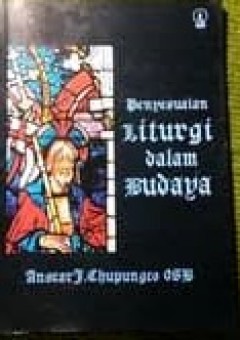
Penyesuaian Liturgi Dalam Budaya
- Edisi
- Cetakan ke-1
- ISBN/ISSN
- -
- Deskripsi Fisik
- 108 hlm.; 21 cm.
- Judul Seri
- -
- No. Panggil
- 264.001 CHU p
- Edisi
- Cetakan ke-1
- ISBN/ISSN
- -
- Deskripsi Fisik
- 108 hlm.; 21 cm.
- Judul Seri
- -
- No. Panggil
- 264.001 CHU p

Pencerahan: Tata Perayaan Ekaristi Terjemahan Bahasa Inggris 2011
- Edisi
- Cetakan ke-1
- ISBN/ISSN
- 978-602-1161-12-8
- Deskripsi Fisik
- xviii + 118 hlm.; 21 cm.
- Judul Seri
- -
- No. Panggil
- 264 CHU p
- Edisi
- Cetakan ke-1
- ISBN/ISSN
- 978-602-1161-12-8
- Deskripsi Fisik
- xviii + 118 hlm.; 21 cm.
- Judul Seri
- -
- No. Panggil
- 264 CHU p
 Karya Umum
Karya Umum  Filsafat
Filsafat  Agama
Agama  Ilmu-ilmu Sosial
Ilmu-ilmu Sosial  Bahasa
Bahasa  Ilmu-ilmu Murni
Ilmu-ilmu Murni  Ilmu-ilmu Terapan
Ilmu-ilmu Terapan  Kesenian, Hiburan, dan Olahraga
Kesenian, Hiburan, dan Olahraga  Kesusastraan
Kesusastraan  Geografi dan Sejarah
Geografi dan Sejarah